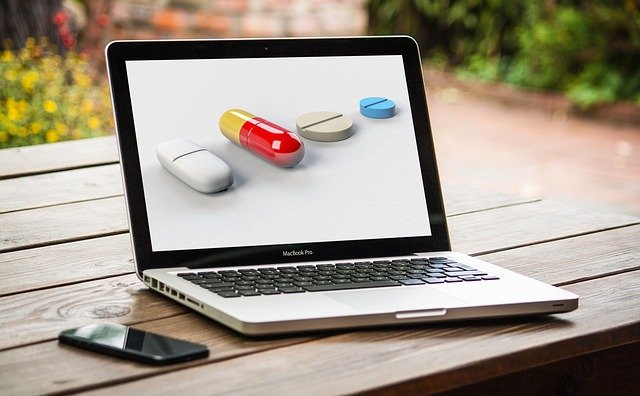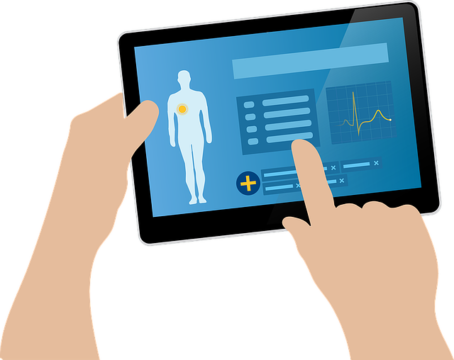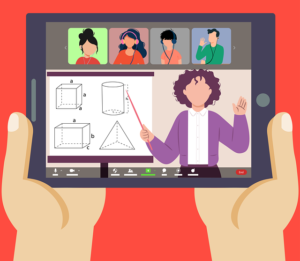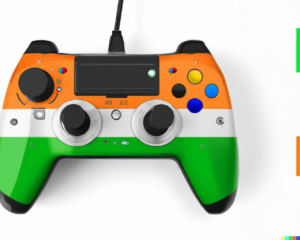Will the pandemic put heathcare access in 2 and 3 tier cities in India on the fast track through digitization?
The pandemic has proved to be a disruptor of India’s healthcare sector, pushing it, albeit rudely, into faster digitization. Digital platforms like telemedicine and online medicine have already made their mark. We can expect India to become better at healthcare management with more digitalization post-COVID-19?
Does this mean that the 2-3 tier cities of India, which have always been bereft from accessing this progress, will finally be able to consult quality healthcare and receive genuine healthcare-related content?
To find out, The Tech Panda spoke to Rajat Garg, CEO and Co-Founder of myUpchar, an online health services startup and an Indian language health information platform that delivers medicines to every corner of India and provides teleconsultations with specialists in fields from gynaecology to psychology.

Rajat Garg
Online medical records and follow ups have also proven to be prominent in building trust in online players. The digitization in this sector will bring in the transparency, accessibility, and accountability a patient really needs
“Telemedicine has been existing in the background for a long period, but the Corona pandemic has brought the facility to the forefront. The comfort of getting doctor consultation and medicine delivery without stepping out of the house can be addictive and relieving,” he says.
As people are preferring to consult healthcare from home rather than visiting hospitals and clinics, their confidence in digital platforms is bound to rise.
“Online medical records and follow ups have also proven to be prominent in building trust in online players. The digitization in this sector will bring in the transparency, accessibility, and accountability a patient really needs,” he adds.
Healthcare Problems in 2-3 Tier Cities
While India yearly produces brilliant doctors, deploys disruptive medical equipment, and generally progresses in digital health, large sections of India’s population still remain bereft of access to this progress. Most of this population fall in the tier 2 and 3 cities of India.
As urbanization is still not quite there in these cities, their populations face problems like inaccessibility to quality treatment and wrong or false information, which is mostly available in English. The arrival of the pandemic has only made things worse for these cities.
Read more: Non-contact Medtech to Protect Brave COVID-19 Medical Personnel
“For healthcare needs, tier 2 and 3 city people mostly rely on local clinics and quacks. The lack of trained staff and inferior quality of treatment is one of the major issues in such areas, and it puts their life at risk. Apart from that, travelling long distances to find a good government hospital is another challenge for them,” Garg explains.
He goes on to explain how the current COVID-19 crisis has worsened the situation for people living in tier 2 and 3 areas.
“Due to the shutting down of local clinics, a major problem for doctor consultation has arisen. The subsequent lockdown has added to the difficulties as travelling long distances for treatment is challenging as well as risky. In some parts of India, heading out of home even to the chemist store is not a good idea due to safety concerns.”
The myUpchar Vision
Started in 2016 by two Stanford University graduates, Rajat Garg and Dr. Manuj Garg, myUpchar currently reaches 15 crore readers and viewers every month through its app, website, and social media channels.
The vision for myUpchar is to become a one-stop solution for every Indian seeking healthcare information and services in local languages. The startup also runs home-sample collection facilities in 30 cities.
For healthcare needs, tier 2 and 3 city people mostly rely on local clinics and quacks. The lack of trained staff and inferior quality of treatment is one of the major issues in such areas, and it puts their life at risk
Their aim is to improve the lives of people every day by increasing healthcare awareness, providing access to doctors and other medical services, anytime and anywhere across India. For this, they have put in place more than three lakh teleconsultations, lab-testing facilities across 30 cities, and medicine e-commerce platforms.
Content Via Six Languages
As a country where languages and dialects change every 15 to 20 kilometres, accessing or dispensing information is often a challenge. Not everyone can access information in English. In fact, according to Google, 85% of the online traffic in India is for six languages, Hindi, English, Marathi, Bengali, Tamil, and Telugu.
Keeping this in mind, myUpchar reaches out through all these six languages and are planning to add many more.
“myUpchar has content in five other languages apart from Hindi i.e. English, Marathi, Bengali, Tamil, and Telugu. The medicinal content is available in 12 languages to serve every user with vital information about the medicines they consume,” Garg explains.
Audio Video Content
myUpchar still faces the challenge of catering to people, who don’t have access to smart devices or are illiterate. This is why they also make use of audio and video content.
“We’ve spent a lot of time in tier 2 and 3 areas in order to understand the audience better. We’ve come to the realisation that a family size of five to six people have at least one smart device in the house. For accessibility, we allow voice search as well as ability to listen to most of our content,” says Garg.
According to recent trends, people are consuming more video content on YouTube and TikTok in these areas. To serve these people, myUpchar is generating video content by qualified doctors both in 2D and 3D. This content is being published through their YouTube, TikTok, and Facebook handles, which are receiving 150 million views monthly.
“That being said, the rural belt is still not there yet. We are making sure that we have enough tools to positively impact their lives when they come online,” he adds.
Scaling Up for COVID-19
The startup is providing free online consultations that helps people to avoid going out for treatment. They can connect with a doctor online and ask questions related to their symptoms and ailments, without the risk of stepping out of their homes, and that too completely free.
Telemedicine has been existing in the background for a long period, but the Corona pandemic has brought the facility to the forefront. The comfort of getting doctor consultation and medicine delivery without stepping out of the house can be addictive and relieving
“myUpchar has been serving the tier 2-3 audience for a long time, but due to the pandemic, we’ve scaled our services to help people better. We’re delivering medicines in majority every part of the country even in this crisis,” Garg says.
People can take a consultation, get their prescription generated at myUpchar, and place their orders. Otherwise, they can simply go to the platform and order medicines without any hassle.
For Covid-related queries, it has a self-assessment screening process. Users can feed their symptoms and get to know the risk of contracting the disease. For high-risk patients, they provide a free teleconsultation in order to understand the situation and provide necessary treatment.
Read more: With COVID-19, health startups brace for opportunities
They’ve recently launched a chemist-user chat feature that allows the user to chat with the nearest myUpchar chemist partner. Users can chat with the chemist store and place their order on the chat itself. The order is then delivered by the chemist partner, hence eliminating the delay in the process of placing orders and getting deliveries.
“Apart from consultations and medicine deliveries, we’re publishing content related to Covid, which provides information from authentic sources, meanwhile negating any rumours or false data around the subject,” he says.
Their Covid-related content has received 50 million views in the past few months. They also have a Corona tracker that is receiving around 60,000 page views per day.












